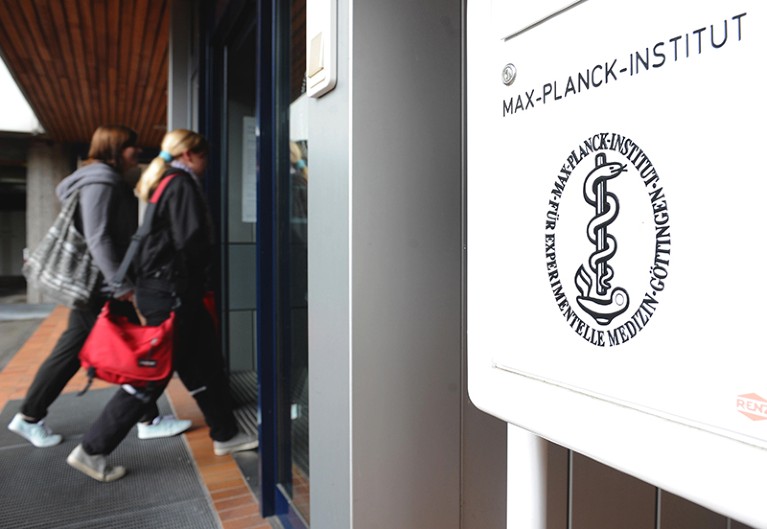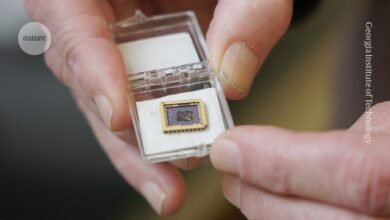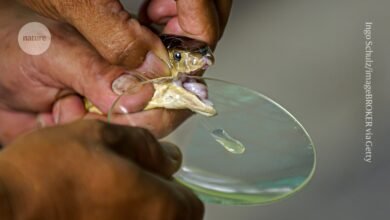How leading a postdoc network boosted my career prospects


PostdocNet represents several thousand postdocs at the Max Planck institutes and provides opportunities for professional development and community building.Credit: Swen Pfoertner/Alamy
A year into my first postdoc, at the Max Planck Institute for the History of Science in Berlin, Germany, I saw a call to join the steering group of the research institute’s PostdocNet as its financial officer. PostdocNet represents the 3,000 postdocs across Germany and a few other countries working at the Max Planck institutes, advocating for better working conditions and career development. I thought managing a budget would be a useful skill for future applications to become a research group leader. I submitted a 3-minute pitch explaining why I wanted the role, and I won the nomination.
I enjoyed my 12-month term so much that I continued in the steering group as a spokesperson. In this one-year role, I represented and managed PostdocNet and headed our steering group, which aims to maximize opportunities for mentorship and academic exchange and build community among postdocs. In practice, we organized interdisciplinary meetings and discussions and represented all postdocs to the Max Planck institutes and external parties, including the German Federal Ministry for Education and Research. I was responsible for communication in the network and with external parties, including the society’s president and contacts in science, industry and politics.
Stress rewarded
I spent about 10 hours each week fulfilling this demanding role — a mini-job alongside my postdoctoral research responsibilities, often spilling into evenings and weekends. The role could be taxing; sometimes, the stress led to sleepless nights.
But the work fulfilled me in ways my research could not. I saw the value and necessity of networks that advocate for postdocs. I wanted to pave the way for future postdocs to have better opportunities. Moreover, I could identify concrete problems, develop solutions and see the immediate impact of our efforts.
Thanks to this role, my confidence and professionalism have grown, and I’ve improved my communication skills. Tasks that once took hours, such as drafting official e-mails, now come easily. The connections I have made have expanded my professional network far beyond my research field. I learnt how to manage a diverse, international team, navigate conflict and lead meetings inclusively.
Ultimately, the extra work was worth it not just for the professional skills that I gained, but also for the personal growth that I experienced — which I will carry with me throughout my career. I have now been appointed by the Max Planck president to serve on the advisory board of the Planck Academy, which offers professional-development opportunities for specific groups of Max Planck employees. This is a service role usually given to those at mid- to senior-career stages.
I am also applying for junior professorships and research-group-leader positions, and I think my PostdocNet roles made a difference in my interviews. One committee member asked me to share more about my work there. In another interview, I drew on my experiences to answer a question about how I would manage conflict in a research group. These experiences taught me that it was not enough to simply list this service role on my CV. I needed to clearly and concretely outline my responsibilities and skills to help interview committees to better understand my achievements.
Overcoming the challenges of running a network
Over the past year, I saw at first hand the struggles of running a successful postdoc network and taking part in academic service relatively early in my career. Here are the four biggest challenges I encountered, and how I addressed them:
1. Institutional memory. Given the high turnover rate of postdocs, steering groups often consist entirely of new members each year. This year, we were fortunate that both the deputy spokesperson and I had served on the steering group previously, which helped to preserve institutional memory, or the collective knowledge and experiences of a group of people. To support the incoming steering group, we wrote a guide on standard operating procedures for the spokesperson role, made e-mail introductions to all our contacts and included the spokesperson-elect in our end-of-term meetings. I documented all activities, meetings and decisions in a comprehensive report for the new steering group. I also made myself available for any questions or enquiries, even after my term ended.
2. Recruitment and participation. Many postdocs are on short-term contracts, and finding their next position is a top priority. Others might be starting families. Very few have extra time to dedicate to an academic network. Offering clear, specific tasks — along with an estimated time commitment — was the most effective way to encourage participation. For example, I estimated that it takes one hour a week to manage social-media posts, and a similar time commitment to organize a scientific talk. Specific and manageable requests yielded better engagement than did vague calls for help.
3. Mentorship. Although I had experience in the steering group, the spokesperson role brought new challenges. To navigate these, I sought a mentor: I reached out to someone experienced in the society who was no longer actively involved, and they provided valuable guidance on pressing issues. Finding a mentor is often just a matter of asking — you’d be surprised by how willing experienced scholars and representatives are to help.





